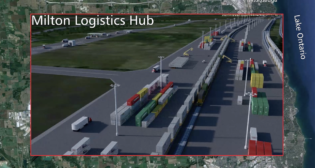
Sweetener Buyers Sour on Railroads
Written by William C. Vantuono, Editor-in-Chief
Are railroads to blame for price increases in tasty, sugar-loaded treats?
Joining organizations like the National Grain and Feed Association, the Sweetener Users Association (SUA) has a sent a letter to the Surface Transportation Board demanding that railroads take their lumps for service problems.
Following is the non-sugar-coated letter to STB Chairman Marty Oberman from SUA President Richard Pasco:
“The Sweetener Users Association (SUA) requests your urgent attention to recent rail issues undermining efforts to continue providing food and beverage products to U.S. consumers in a cost-efficient and timely manner. While there has been a significant amount of media attention given to these issues, we believe that it is useful to provide our own on-the-ground account of the difficulty and extreme cost that has been imposed on our companies due to lack of performance by the rail sector in recent months.
“SUA represents companies that purchase sugar for use in foods and beverages. SUA members include many of the largest food manufacturers in the United States and purchases of sugar by these and similar industrial users represent a large portion of sugar consumed in the U.S. These companies rely on major suppliers to provide high-quality refined sugar on a timely basis. In many cases, rail transportation is the best option for SUA members to obtain sugar delivered directly to their factories, and delivery of sugar in this bulk form is an integral component of the business plans for SUA members’ manufacturing plants.
“We really rely on the rail sector to optimize the logistics of sugar delivery, helping to reduce overall supply chain costs, including the cost of carrying inventories. However, efforts to reduce supply chain costs can be only as effective as the transportation link between each party. In the case of the sugar deliveries to manufacturing facilities, our primary concern is slow and inconsistent train movement. Intermittent switches at the plants are not only causing it to take twice as long to get the bulk rail cars, but even when companies get them, they are not consistently switching them into the manufacturing plants. For example, a manufacturer may have 50 railcars of sugar close to their facilities and still run out because the railroad is not switching them into the plants due to a lack of labor.
“If orders for bulk rail shipments placed by some companies continue to be chronically late, as they have for the last several months, one of the few options is to replace bulk rail cars with shipments by bulk trucks, which is not always possible and is more costly. Avoidable delays have caused our member companies—as buyers of sugar—to incur unnecessary costs, including the cost of carrying inventories. Additionally, some food and beverage companies have also experienced difficulties in scheduling production of a variety of products, due to the uncertainty of sugar supplies.
“To summarize, all of the following have occurred while railroads are charging historically high fees:
- “Issues with switching have forced companies to reduce production in key product lines and shut down manufacturing facilities.
- “To compensate, companies have tried to supplement transportation logistics with trucks where possible, adding additional costs and strain on a fractured truck market.
- “Where trucking is not an option, companies have added more cars to account for the slower turn times. This has created bunching of cars, increased dwell times, and demurrage at destinations.
- “Precision scheduling, far from its intended result of increasing efficiency, has created total communication breakdowns. Facilities are not told when the daily switch will not happen as planned until customers call to report that a car did not arrive. There are no responses from railroads to these delays.
- “Actual and threatened embargoes at customer destinations routinely hinder shipping cars.
“We appreciate that the Surface Transportation Board (STB) is currently considering regulatory options that may address some of the above, but more urgent action is needed. In that regard, we support Agriculture Secretary Tom Vilsack’s suggestion that the STB obtain service improvement plans from each railroad and require weekly updates from them to ensure progress is made. Further, STB should consider what other tools it has at its disposal to increase competition and combat unfair business practices in the rail industry.
“SUA supports efforts by your agency to induce an improved level of service and we offer any resources that we have available to assist you in developing solutions to the serious problems that our member companies and other rail customers are currently experiencing.
“We stress that the need for solutions to the ongoing rail logistic issues is urgent. The legitimate needs of companies that produce America’s food supply should be a priority that is brought to the immediate attention of railroad firms. Thank you for your agency’s dedication to maintaining a viable national transportation system.”

Editor’s Commentary: April 17 is Easter Sunday. Do these railroad service problems mean that the prices of traditional Easter candies like chocolate bunnies (solid or hollow), marshmallow peeps (in assorted artificial colors) and sugar-candy-coated chocolate eggs have increased, making Easter baskets really expensive? Is the Easter Bunny (Peter Rabbit) pissed-off? Parents, however, may take heart that they now have an excuse to limit their childrens’ sugar intake. All kidding aside, “America’s food supply” is overloaded with sweeteners and processed food, major drivers of serious health problems like obesity and diabetes. I like my sweets as much as anyone (Italian pastries are a weakness), but cutting down on sweeteners, especially the artificial kinds, may not be so bad. Just sayin’. – William C. Vantuono




